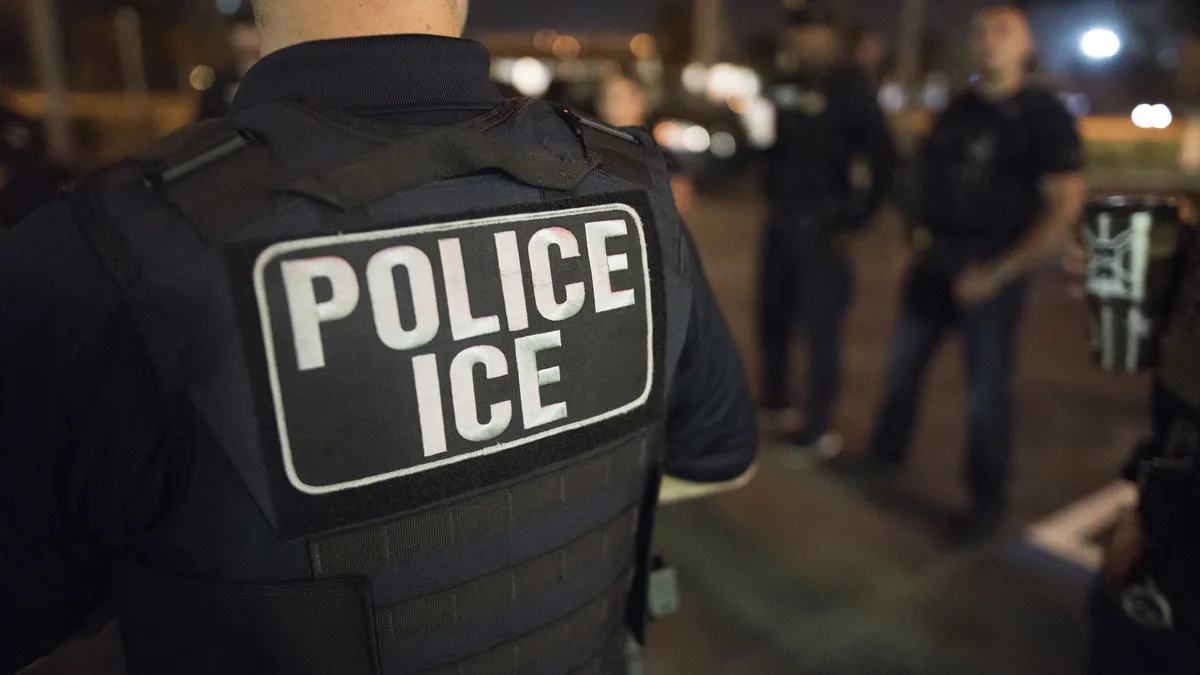Dive Brief:
- U.S. Immigration and Customs Enforcement (ICE) has doubled the amount of ongoing worksite cases this fiscal year compared to the last fully completed fiscal year, it announced Monday.
- From Oct. 1, 2017, through May 4, the agency's Homeland Security Investigations (HSI) says it opened 3,510 worksite investigations, initiated 2,282 I-9 audits and made 594 criminal and 610 administrative worksite-related arrests. For fiscal year 2017 — October 2016 to September 2017 — HSI reports that it opened 1,716 worksite investigations, initiated 1,360 I-9 audits, and made 139 criminal arrests and 172 administrative arrests related to worksite enforcement.
- HSI's acting executive associate director, Derek N. Benner, said in a statement that the agency's worksite enforcement strategy continues to focus on the criminal prosecution of employers who knowingly break the law and the use of I-9 audits and civil fines to encourage compliance.
Dive Insight:
ICE's enforcement efforts should come as no surprise. The agency announced in October 2017 its plans to increase worksite investigations by four- or five-fold and since then has undertaken several headline-grabbing raids.
At a Chicago bakery last year, it arrested 800 allegedly undocumented workers; in April, 197 were taken into custody at a a meat-packing plant. And in the largest single-company raid under the Trump administration, ICE targeted nearly 100 7-eleven stores in January, arresting 21.
Employers were encouraged to conduct self-audits of their Form I-9 processes and to train front-facing employees on what to say or do if federal agents arrive on site. For some, however, those efforts were complicated by state actions taken in response to the administration's efforts. California, for example, enacted a law prohibiting employers from providing "voluntary consent" to a federal immigration enforcement agent's request to enter nonpublic work areas. The state's attorney general said he intended to prosecute those who violate the law, and then the federal government sued California, alleging it is intentionally obstructing the enforcement of federal immigration law.
For now, training and Form I-9 compliance remain important best practices for employers. Business must ensure they don't go too far, however. Requiring workers to go above and beyond what the form requires can amount to discrimination, as one employer learned the hard way.












